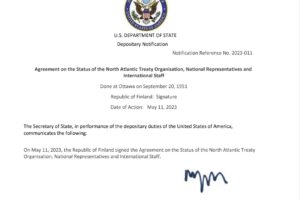The recent evacuation efforts from Afghanistan have brought tens of thousands of Afghan refugees to the United States, offering them safety and a new beginning. However, amidst this humanitarian effort, there are emerging concerns regarding the political leanings of some evacuees, particularly their expressed support for the Iranian government under the flag of the United States of America. Such sentiments pose significant national security concerns for the United States and its citizens.
While it’s crucial to recognize that the majority of Afghan evacuees are fleeing from the Taliban regime and seek refuge from persecution, a small fraction appears to have affiliations or sympathies with the Iranian government. This allegiance, which seems contradictory under the flag of the United States, raises red flags and warrants close scrutiny from security agencies.
The reasons behind this support for Iran among some Afghan evacuees can be multifaceted. Iran shares a border with Afghanistan and has historically played a significant role in Afghan affairs. Additionally, there may be cultural or religious ties that influence certain individuals’ inclinations towards Iran. Moreover, misinformation or propaganda spread within refugee communities could also contribute to the propagation of such sentiments.
From a national security perspective, the implications of Afghan evacuees supporting the Iranian government while residing in the United States are troubling. Iran has a complex relationship with the U.S., characterized by geopolitical tensions, proxy conflicts, and ideological differences. Expressing support for the Iranian government under the guise of American citizenship raises concerns about potential espionage, radicalization, or even acts of terrorism.
Furthermore, such sentiments can undermine the integration and assimilation of Afghan refugees into American society. The foundation of the United States is built upon democratic principles, freedom, and allegiance to the Constitution. Any allegiance to foreign governments, especially those hostile to U.S. interests, contradicts these values and threatens the social cohesion of American communities.
To address these concerns, it is imperative for the U.S. government to implement robust screening and vetting procedures for Afghan evacuees. While the priority remains providing humanitarian assistance and protection to those fleeing persecution, ensuring that individuals entering the country do not pose a threat to national security is paramount.
Additionally, efforts must be made to provide cultural orientation and integration programs to Afghan refugees, emphasizing the principles of democracy, individual freedoms, and the rule of law. These programs can help counter any misinformation or propaganda that may influence evacuees’ perceptions and allegiances.
Moreover, intelligence agencies should closely monitor and investigate any instances of suspicious activities or affiliations among Afghan evacuees. Collaboration with international partners, particularly those in the region, can also aid in identifying and addressing potential security threats posed by individuals with ties to the Iranian government.
Ultimately, while the influx of Afghan evacuees presents a humanitarian imperative, it also poses complex challenges for national security. Balancing the protection of vulnerable populations with safeguarding the interests of the United States and its citizens requires a comprehensive and vigilant approach. By addressing concerns related to affiliations with foreign governments, particularly those adversarial to the U.S., the nation can uphold its commitment to both humanitarianism and security.





